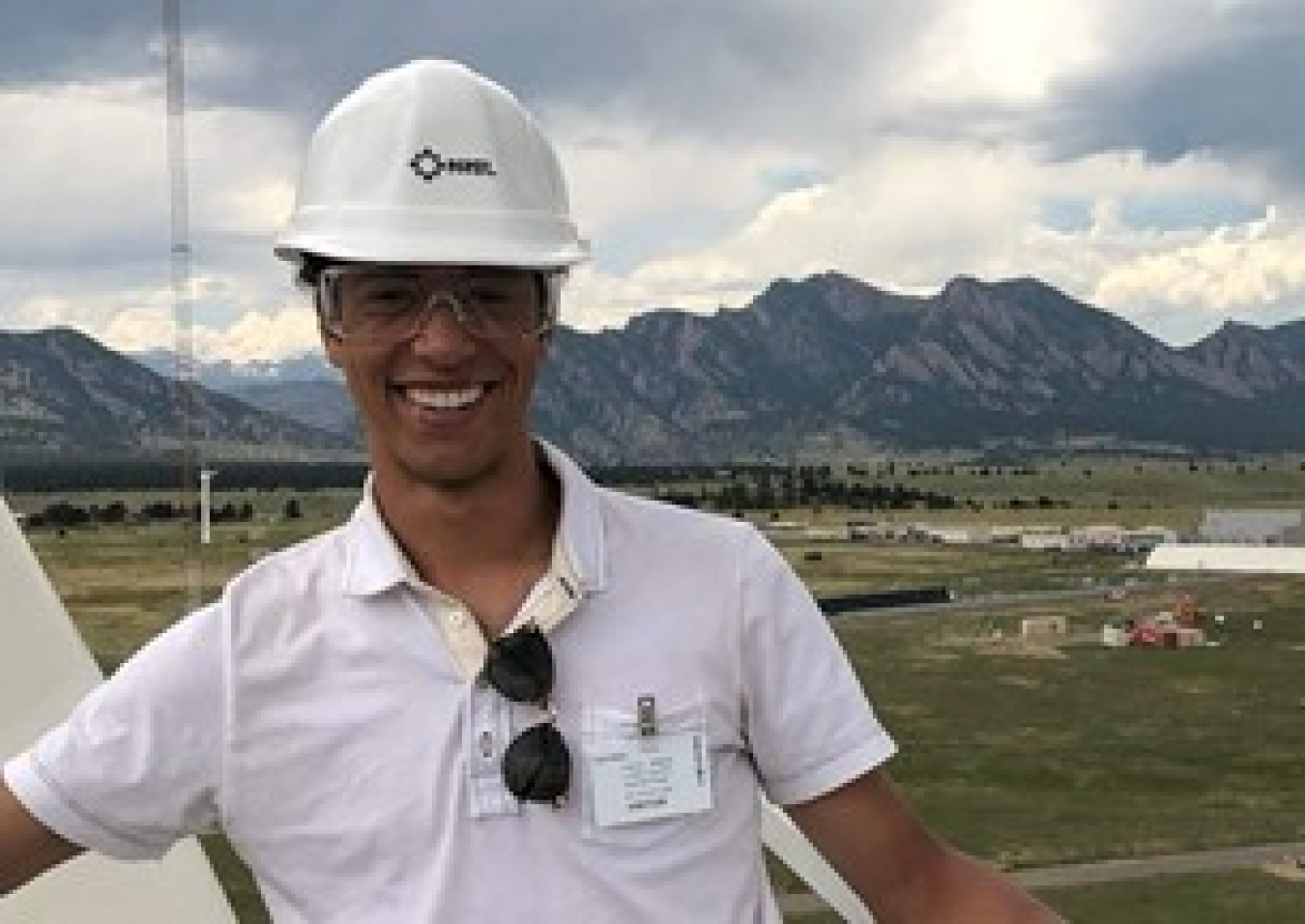
November 8th is National STEM Day and, though an unofficial holiday, the theme is an important one for the Water Power Technologies Office (WPTO) within the Department of Energy (DOE). STEM disciplines, or the fields of Science, Technology, Engineering, and Mathematics, are critical to understanding our world and developing solutions to complex challenges. If not for our nation’s STEM-educated workforce, the U.S. could not develop the solutions we need to advance clean energy technologies and address climate change.
And the work won’t stop any time soon. Today’s students will be tomorrow’s leaders, and they will be at the forefront of important breakthroughs that change our world for the better. That is why WPTO recognizes the importance of STEM—today and every day.
On this National STEM Day, we challenge students to consider a career in STEM, and we happen to think the water power sector is a good place to start. Whether as a marine energy researcher, a hydropower operations manager, or an environmental specialist, water power offers a variety of exciting and meaningful careers. We encourage you to explore the opportunities and educational resources below and follow WPTO’s newsletters for exciting updates on these programs.

Trent Dillon, a current fellow in the Marine and Hydrokinetic Graduate Student Research Program, is studying the potential benefits of harnessing wave energy to improve coastal resilience for the Makah Tribe, whose land is situated on the northwest corner of the Olympic Peninsula. During his internship, Trent had the opportunity to stand on top of a wind turbine more than 250 feet above the ground at NREL’s National Wind Technology Center. Photo Courtesy of Trent Dillon.
Graduate Students: Apply Today for a Research Fellowship in Marine and Hydrokinetics
Applications are open for the Marine and Hydrokinetic Graduate Student Research Program. Funded by WPTO and administered by the Oak Ridge Institute for Science and Education (ORISE), the fellowship program is open to full-time doctoral students with a research thesis or dissertation at a U.S. institution. The program is designed to advance the student’s overall thesis while providing access to the expertise, resources, and capabilities available across national laboratories, industry partners, or another approved facility where the participant will conduct part of their research. Apply now for the next cohort! Applications are due by December 10, 2021, at 5 p.m. Eastern.
Educators and Students of All Ages: You’re One Click Away from an Ocean of Opportunity
A few years ago, WPTO and its partners realized what STEM educators already knew: quality, up-to-date educational materials about cutting-edge energy technologies are scattered. Therefore, WPTO, the National Renewable Energy Laboratory (NREL), and the Hydropower Foundation teamed up to create a database of water power educational resources and curricula for educators. But educators aren’t the only users; the hydropower and marine energy STEM portals also feature information on career pathways, links to professional development opportunities, and workforce data and analysis.
We encourage you to check out the resources in these portals and learn something new today. We’ll recommend a few places to start:
NREL and Mystic Aquarium in Connecticut created a series of animation videos to showcase the types and opportunities of marine energy as part of Mystic’s Renewable Ocean Energy exhibit developed in collaboration with NREL, WPTO, and industry partners.
- Watch an animated video about how researchers in Hawaii are observing whales using technology powered by energy from waves and the sun.
- Learn how Allison Frechette’s passion for whitewater rafting led to a career in hydropower.
- Discover what it’s like inside a hydropower facility by taking a virtual tour.
- Explore marine energy-related professional networks and development opportunities, including marine and energy industry professional associations and internships.
Scientists in Hawaii use energy from waves and sunlight to power a recording device and listen to whales. The renewable energy-powered “Wave Gliders” allow scientists to gather information at sea without harming the whales and the surrounding environment. This video is one of many resources in the STEM portals.
Undergraduate, Graduate, and Community College Students: Jump-Start Your Water Power Career by Participating in a Collegiate Competition!
The U.S. hydropower workforce is aging; a quarter of the current workforce is already retirement-eligible or will be within the next few years. What does that mean for you? Near-term job opportunities! One way to explore these opportunities is by participating in the upcoming Hydropower Collegiate Competition. WPTO and NREL are planning to launch this new competition in 2022 to bring together bright, soon-to-be workforce entrants to solve real-world problems with partner hydropower operators and utilities. The application for the new Hydropower Collegiate Competition will be released this spring and competition activities will start in fall 2022.
This new competition will build off a successful model WPTO and NREL designed for its Marine Energy Collegiate Competition (MECC). In autumn of 2019, WPTO welcomed the first cohort to the competition, challenging students to propose technical solutions and business cases for marine energy. Fast forward to today and the annual competition is in its third year with a record of engaging hundreds of students and dozens of faculty advisors across 47 institutions. In spring 2022, the 17 teams in the current cohort will present their work to a panel of judges. Around the same time, WPTO will announce the winners and release the application for the next year of the competition.
Has either competition piqued your interest? If so, start discussing with your friends and your professors, and look out for the competition applications when they are released in spring 2022.
Hungry for More? We Got You!
Not one person, nor one technology, can solve our planet’s greatest challenges alone. Water power technologies aren’t the only solution needed to realize our clean energy future, so your learning doesn’t have to end here. Whether you’re interested in marine energy or hydropower, solar or wind energy, nuclear security or quantum computing, DOE’s sure to have something for you. To learn more about what DOE at large is doing to support STEM, visit the STEM Rising website.
